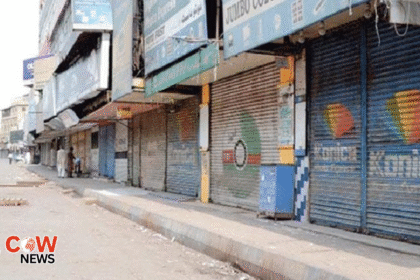Abubakar Mahmood, the vice captain of the Pakistan hockey team and a key player known for his drag-flicking prowess, is currently facing a distressing situation following a serious knee injury sustained during a match against India in the Asian Champions Trophy. Despite assurances from both government officials and the Pakistan Hockey Federation (PHF), Abubakar remains without the necessary medical treatment, highlighting significant negligence in the support provided to athletes.
The Injury and Initial Promises
Abubakar’s injury occurred during a crucial match where he was a pivotal player for the national team. After the injury, there was an immediate response from officials, who recognized the need for prompt medical attention. Sources indicate that during the team’s stay in China, the president of the PHF, Tariq Bugti, personally assured Abubakar that arrangements would be made for his treatment. Furthermore, Rana Mashhood, the chairman of the Prime Minister’s Youth Program, also expressed his commitment to facilitating Abubakar’s medical care through a video call.
These assurances were a source of hope for Abubakar, who anticipated that his recovery would be expedited with the support of the federation and the government. However, upon returning to Pakistan, the reality was starkly different. Despite the promises made, no concrete arrangements for his treatment were forthcoming.
Lack of Support from PHF and Government
After Abubakar returned home, he was informed by the PHF that there were no available funds to cover his medical expenses. This revelation not only came as a shock to the player but also underscored the ongoing issue of inadequate support for athletes in Pakistan. The federation advised Abubakar to initiate his surgery and rehabilitation independently, promising reimbursement for expenses once funds became available. However, the lack of a timeline for this reimbursement left Abubakar in a precarious position, unsure of whether he could afford the necessary treatment.
The cost of knee surgery is substantial, often reaching hundreds of thousands of rupees, which poses a significant financial burden for many athletes. Abubakar, having dedicated his life to the sport, now faces the grim reality of possibly compromising his career due to financial constraints and bureaucratic delays.
Risks of Delayed Treatment
Medical professionals have repeatedly emphasized that delaying surgery can exacerbate injuries, leading to more severe complications and extended recovery times. In Abubakar’s case, the risk is not only physical but also psychological. Uncertainty regarding his recovery could affect his performance and mental health, both of which are critical for an athlete competing at an elite level.
Initially, the government and the PHF considered arranging for Abubakar to undergo surgery abroad, where he could receive top-notch medical care. However, this plan fell through due to the lack of available funds. This situation raises questions about the prioritization of athlete welfare within the sports governance framework in Pakistan, particularly in a sport that has historically held national significance.
The Road Ahead: Hope and Challenges
Despite the setbacks and challenges he faces, Abubakar remains hopeful about his recovery. His desire to pursue surgery and rehabilitation abroad reflects not only his commitment to the sport but also a belief in the possibility of better care. However, the prolonged delay in treatment continues to cast a shadow over his future in hockey.
Athletes often find themselves in a vulnerable position, dependent on the systems designed to support them. The case of Abubakar highlights the broader issues within the sports infrastructure in Pakistan, where athletes frequently encounter obstacles in accessing the necessary medical care and support. The failure to provide timely assistance not only jeopardizes individual careers but also undermines the potential of sports as a unifying force in the country.
The Call for Change
The current situation serves as a wake-up call for sports authorities in Pakistan. There is an urgent need for a robust framework that prioritizes athlete welfare, ensuring that players receive the medical attention they require without unnecessary bureaucratic delays. This includes:
- Establishing Emergency Medical Funds: Creating dedicated funds to cover urgent medical expenses for athletes can alleviate the financial burdens they face in times of crisis.
- Streamlining Administrative Processes: Simplifying the process for accessing medical care and funding can ensure that athletes receive timely assistance without excessive red tape.
- Promoting Transparency and Accountability: Regular audits and public reporting on how funds are allocated and spent can increase transparency, ensuring that athletes receive the support they need.
- Enhancing Communication: Better communication between athletes, sports federations, and government officials can help ensure that promises made are promises kept. Establishing a feedback mechanism can allow athletes to voice their concerns and needs effectively.
Abubakar Mahmood’s current plight serves as a critical reminder of the challenges facing athletes in Pakistan. His situation not only underscores the need for immediate medical attention but also highlights systemic issues that require urgent reform. As he awaits the promised treatment, Abubakar’s perseverance exemplifies the spirit of dedication that athletes bring to their sport.
For the future of hockey and sports in Pakistan, it is imperative that authorities take decisive action to ensure that no athlete has to face the dual challenge of injury and neglect. Only through sustained commitment to athlete welfare can the country hope to nurture its sporting talent and foster a culture that prioritizes health, well-being, and excellence in sports.
Meta Description and Hashtags
#AbubakarMahmood #PakistanHockey #AthleteWelfare #SportsNegligence #MedicalCare #HockeyPakistan #AthleteSupport #SportsReform #KneeInjury







